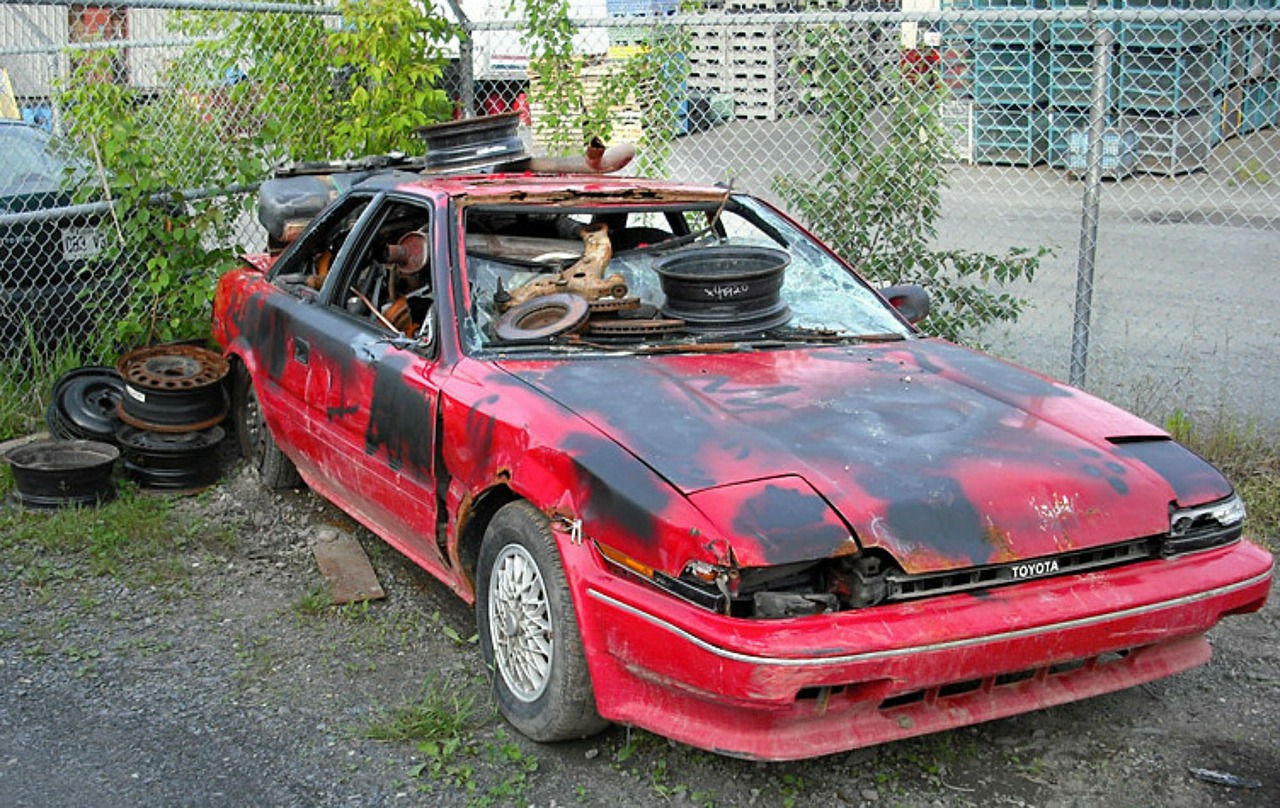The Economic and Ecological Benefits of Recycling Junk Automobiles
Reusing scrap automobiles presents numerous financial and environmental advantages that expand well past waste decrease. These benefits underscore the complex worth of reusing junk automobiles, yet there are better facets to think about when assessing its complete impact.
Minimizing Land Fill Waste
Minimizing land fill waste with the recycling of scrap cars plays an essential duty in environmental preservation. When autos reach completion of their life cycle, reliable recycling procedures can significantly decrease the volume of waste that winds up in landfills. Scrap autos, if not properly recycled, contribute to the growing problem of garbage dump overcapacity, exacerbating environmental deterioration and potentially polluting soil and groundwater with harmful materials such as oil, gas, and hefty metals.

In addition, the recycling process alleviates the unfavorable impacts of vehicle waste on biodiversity. Garbage dumps are notorious for disrupting regional ecosystems, and reducing the influx of junk cars and trucks aids protect all-natural environments. Ultimately, reusing scrap cars is a strategic technique that cultivates sustainable waste administration, aligning with more comprehensive ecological objectives.
Conserving Natural Resources
In enhancement to mitigating garbage dump overcapacity, reusing junk vehicles plays a substantial duty in conserving natural sources. By reusing scrap automobiles, we substantially decrease the need for raw materials, consequently suppressing the ecological destruction associated with mining activities.
In addition, the process of recycling vehicle components such as light weight aluminum, lead, and copper is far much less energy-intensive than producing these products from virgin resources. This energy financial savings converts straight right into decreased nonrenewable fuel source intake and reduced carbon footprints (junk car buyers). In addition, by reclaiming and repurposing products, we prolong the lifecycle of non-renewable resources, ensuring they continue to be offered for future use
Moreover, reusing auto liquids like oil, transmission, and antifreeze fluid prevents harmful compounds from infecting dirt and water resources. Via systematic recycling initiatives, these liquids can be cleansed and reused, advertising a round economic climate and more decreasing the strain on natural deposits. Therefore, recycling junk autos offers a diverse approach to conserving our earth's very useful natural assets.
Creating Work Opportunities
The recycling of scrap automobiles not only benefits the atmosphere but likewise boosts economic development by producing work chances. This expanding industry offers a large array of work leads, varying from the initial collection and transport of old lorries to the elaborate processes of taking apart, sorting, and repurposing the different elements.

The spreading of reusing plants additionally amplifies the work market, necessitating duties such as designers, maker operators, and high quality control specialists to ensure and take care of the advanced machinery compliance with environmental laws. Even administrative settings, such as sales, advertising, and customer care, see a rise as the industry increases.
Decreasing Manufacturing Costs
By incorporating recycled materials from junk automobiles, makers can significantly reduce manufacturing prices. The power called for to process recycled products is considerably less than that needed to produce new materials from scratch.
Additionally, the reusing process aids enhance the supply chain by providing a stable influx of products that are easily available and frequently less costly than newly extracted resources. These price efficiencies are particularly critical in a highly affordable industry like auto production, where margins can be razor-thin. In addition, the recycling of junk automobiles helps mitigate the volatile rates of basic materials, allowing producers to better projection and regulate their manufacturing budgets.
Supplying Inexpensive Automobile Components
When junk cars and trucks are reused, the schedule of budget friendly automobile parts significantly increases, benefiting both customers and service center. Recycled automobile components are commonly cost a fraction of the cost of brand-new parts, supplying a cost-effective option for car owners and mechanics. This affordability can be critical for people who might not have the monetary ways to buy brand-new parts, allowing them to preserve their vehicles in operational and risk-free condition.
Repair stores also acquire from this enhanced accessibility of cost effective parts. By sourcing recycled elements, these organizations can lower their operational expenses, which can be passed on to consumers through reduced service costs. This, consequently, can bring about greater customer satisfaction and commitment, as clients appreciate the expense savings without compromising on top quality.
Furthermore, the high quality of recycled components has actually improved substantially for many years, many thanks to innovations in reusing procedures and quality control actions. Many recycled components go through rigorous testing to ensure they meet sector criteria, supplying reliability similar to repairs - sell my junk car today. By providing a high-quality and economically feasible option, the recycling of junk cars and trucks plays a critical role in supporting both the automotive repair work sector and the more comprehensive customer market
Final Thought
Recycling junk autos presents substantial economic and ecological benefits by considerably lowering garbage dump waste and conserving all-natural resources. This method reduces making expenses by redeeming as much as 90% of lorry parts, hence decreasing power usage and greenhouse gas emissions. Furthermore, it creates employment possibilities across various fields and materials inexpensive car parts, boosting the automotive repair service industry. Overall, the recycling of junk vehicles supports both financial growth and sustainability objectives.
Reusing junk vehicles offers many economic and environmental benefits that prolong well beyond waste decrease. Scrap cars, if not effectively recycled, contribute to the expanding issue of land fill overcapacity, exacerbating environmental degradation and possibly contaminating dirt and groundwater with harmful materials such as oil, gas, and hefty steels.
By reusing scrap cars and trucks, we significantly reduce the need for raw products, therefore suppressing the environmental destruction associated with mining activities.When junk autos are reused, the schedule of cost effective automobile components dramatically boosts, benefiting both consumers and repair shops.Recycling scrap vehicles presents substantial economic and environmental benefits by significantly minimizing landfill waste and conserving natural resources.